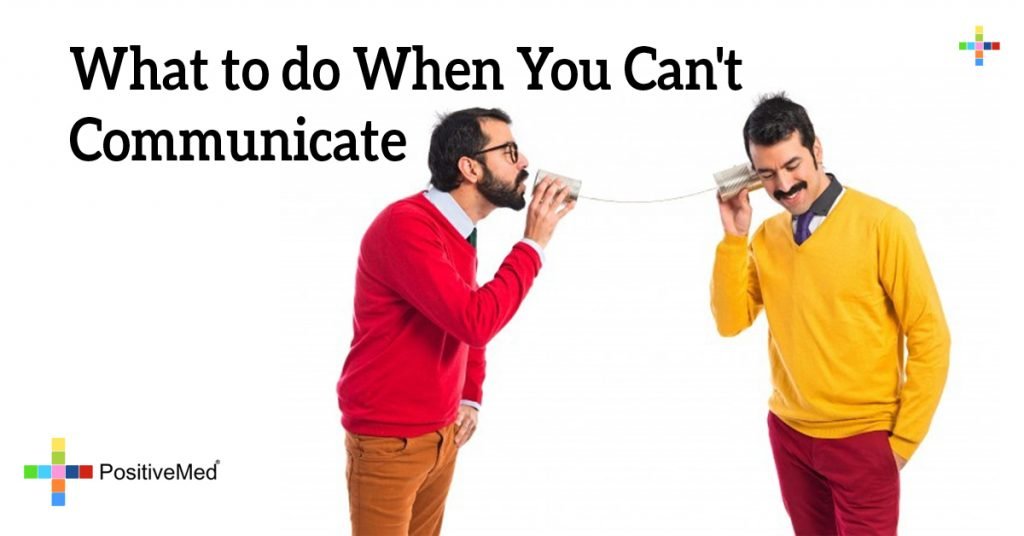
What to do When You Can’t Communicate
By Dr. Margaret Paul
Do you know a healthy way of behaving when you are stuck and unable to communicate with someone? Learn how in this article
What do you usually do when you get stuck with someone and can’t communicate?
Do you:
- Try harder to get your point across, talking louder or faster?
- Get angry, shouting to intimidate the other person into hearing you and/or agreeing with you?
- Cry in frustration?
- Feel resigned, give in and just listen quietly to the other person?
- Walk away or hang up the phone in a huff, withdrawing your love in the hope of punishing the other person into hearing you?
- Grab a drink or food to avoid your feelings?
- Turn on the TV or open a book?
- Ruminate about how wrong the other person is and what you wish you could say to them?
- What happens within you and with your relationship when you do any of these things?
Generally, what happens is that you and the other person are distant for a while and then things calm down, but it may be some time before you and your partner (or friend, child, parent, co-worker) feel comfortable talking with each other or being around each other again.

There is a better way to approach the situation when you can’t communicate.
– First, it’s important to understand WHY you can’t communicate.
Why Communication Gets Stuck
Good communication and conflict resolution flow naturally when two or more people are open to learning about themselves and each other.
This means that it is more important to you to learn from the situation than it is to be right and win.
It is impossible to communicate effectively when one person is not open to learning.
Think about it for a minute. How often does it work to resolve an issue or reach understanding if one person is attached to controlling the outcome of the conversation? Yet how often do you keep trying and trying while frustration is building?
What would you do if you 100% accepted that there is no way of being heard or understood when the other person is closed to learning, and there is no way you are going to hear or understand when you are closed to learning?
What to do when You Can’t Communicate
The first thing to do is to check in with yourself and make sure that you are open to learning. If you check in and discover you are closed, angry, blaming, defensive or stressed, or that you have an agenda, then you either need to shift your intent from controlling to learning, or you need to accept that this is not a good time for you to talk. You might say, “I think I’m feeling too frustrated right now to talk about this. Let’s try again in half an hour.” Then you disengage, and do some inner work to get yourself open and caring and then go back and try again.
If you check in and you are open, the next thing to do might seem simple, but it’s incredibly challenging for most of us. You need to 100% accept that, if you are stuck in communicating, the other person is not open, and that there is nothing you can do about it. It’s very hard for most of us to accept that we have no control over whether another person chooses to be open or closed, caring or uncaring, controlling or accepting.
If you 100% accepted your lack of control over the other person’s intention, and 100% accepted that you can’t resolve anything when one person is closed, then you can take loving action in your own behalf.
The healthy action you can take is to say, “We seem to be stuck in our communication right now. Let’s try it again in half an hour.” Notice you are not accusing the other person of being closed, which would be a form of control. You are merely stating that you are stuck.
The challenge now is to keep your heart open so that when the other person is open, you are too. This means that you walk away with love rather than anger, and tend inside to any sadness or heartache over the lack of connection with the other person.
If the other person never opens, then you need to accept that there is no way of resolving anything with that person, and you need to open to learning about how to take loving care of yourself in the face of that truth.
 By Dr. Margaret Paul
By Dr. Margaret Paul
Margaret Paul, Ph.D. is a best-selling author, relationship expert & Inner Bonding® facilitator. She has counseled individuals & couples since 1968. She is the author/co-author of eight books, including the internationally best-selling Do I Have To Give Up Me To Be Loved By You?, Healing Your Aloneness, Inner Bonding, and Do I Have To Give Up Me To Be Loved By God? She is the co-creator of the powerful Inner Bonding® healing process, recommended by actress Lindsay Wagner and singer Alanis Morissette, and featured on Oprah, as well as on the unique and popular website Inner Bonding & of the transformational self-healing/conflict resolution software program, SelfQuest®. Click here for a FREE Inner Bonding course.





